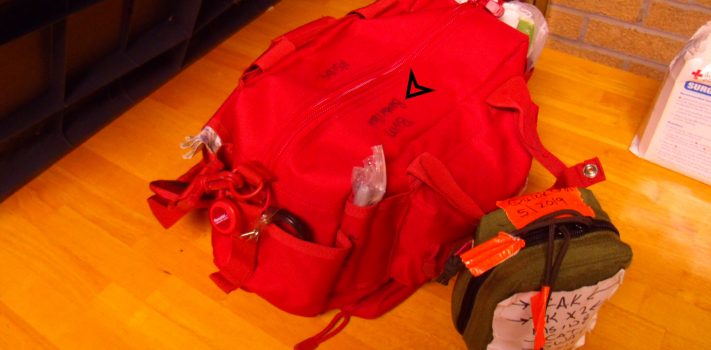Email a copy of 'Weatherproofing My Medic Bag - Part 2, by Skyrat' to a friend
6 Comments
- Ad L3 UNFILMED WHITE PHOSPHOR COMMERCIAL GRADE NIGHT VISION PACKAGEHuge Savings $400 off normal cost!
- Ad Ready Made Resources Anytone Termn-8RCall us if you have Questions 800-627-3809


Skyrat, thank you for the article, it is very helpful! While I am not a medical professional, I live on a farm and I am constantly give 1st aid to someone or some animal. How often should some of these items be replaced (like quick clot)? Will placing some of these item, like a BP cuff, in ziplock bags extend their usage? What causes them to deteriorate so quickly, just age or heat? I use a lot of Coban; does it last longer if stored in ziplock bags?
The issue with stored Coban is heat and presseure, kind of like explosives but without the exploding. Ziplock bags I feel are fine for them and have had no issue with storing them that way. Quick clot has a best by date on it. I don’t like to use it but that is personal preference and nothing against it. As for the BP cuff I don’t have a solution for that because I use an electronic solution. Not as good as a dedicated device but in a situation I would use my kit we are just beyond taking vitals. I am also not a medical professional so with anything I say YMMV.
Animal House: ref the Quick Clot: the hemostatic agents (including Celox) have outdates on the packaging. Being an old nurse, I cycle the “past expiration date” material to my “training” box. First use is to train (surprise!) with the out dated stuff, rather than the fresh items.
Secondary use, is if TSHTF, I would have supplies that might be useful. That is, MIGHT be useful, in a “Zombie Apocalypse” sort of scenario.
I bagged the Coban, so as to keep it in one place. Otherwise, it tends to migrate beneath other stuff, and therefore requires digging around to find/extract it. The vacuum pack was my OCD kicking in, and was a horrible fail. As Just Some Guy notes, zip lock bags are suitable.
Ref the BP cuff: rubber goods, like bladders, simply “age out”. While it takes some time (the subject BP cuff bulb was originally acquired circa 1975), it should be expected (and planned for. Now, THAT is another imperfection in my planning!) Recognize that the electronic BP measurement devices, likely still have a rubber (or rubber like) material forming the bladder that applies the pressure, so it is a good idea to anticipate that material dry rotting, and what you will do to replace it when it does.
Great article. I’ve been an EMT on and off for 30 years, mostly while I was a cop in the ESU, and a former volunteer firefighter. The rotation of EMS supplies is a constant but necessary chore. You’re clearly on top of it! Thanks for writing the article.
Speaking of Medical equipment-
(Please disregard my previous incorrect link.)
https://mostlycajun.com/wordpress/?attachment_id=48665
We need more on this topic! Because radio and medicine are the two weakest skill sets that sorely need to be addressed. Radio would be the easier topic to get an handle on, and because it is essential to our security, it is the priority, then comes first aid, or in some cases, ‘last-aid’. When is come to gun shot wounds, it is all about stopping the bleeding. It will likely become septic, and the only chance to mitigate that would be oral antibiotics immediately, when huge doses of IV antibiotics are called for.
As some one who took blood thinners for years, before I stopped taking medications of all kinds, the bleeding from a small cut was difficult to stop, and a scary situation. If taking blood thinners, I would be prepared to use a tourniquet. If in the middle of a war zone, the risk of bleeding out is high, therefore in my unqualified opinion, the possible benefit from blood thinners is for myself, inferior to the risk of bleeding out due to a minor laceration, and certainly in the event of a gun shot wound.
I would discuss this with your doctor. Unstable angina posses certain risks, and requires the use of blood thinners. Stable angina is different. However, consider that it would safer for the Doctor to avoid potential lawsuits, and so would naturally insisted on the use of a blood thinner.